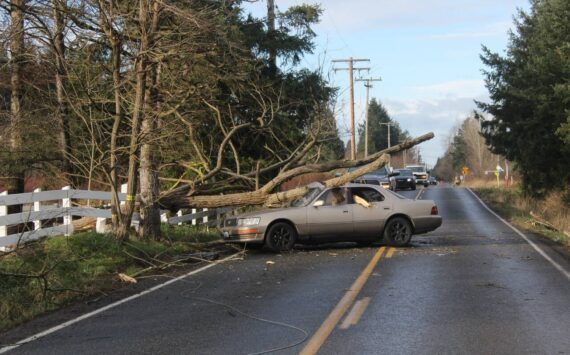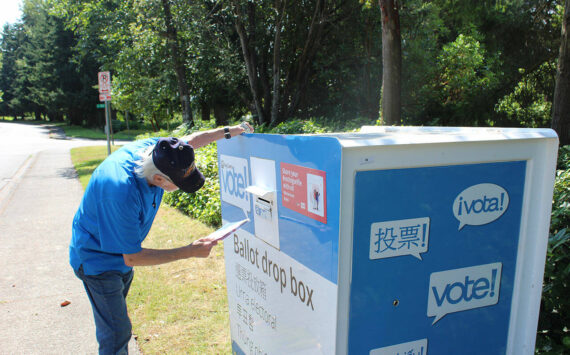Empty flower beds, reclaimed water and dry fountains are in the plans for the Capitol Campus in Olympia this summer.
It is part of an effort by state government to take a leading role in dealing with the current drought.
The Department of General Administration, the agency that manages the campus, is aiming to cut campus water use by 25 percent – almost 11 million gallons – this summer in response to Gov. Christine Gregoire’s recent drought declaration.
“We must become more frugal in our use of water, not just during the drought, but every year,” says Linda Villegas Bremer, director of the state Department of General Administration. “State government should set an example.”
The targeted 11 million gallons in savings is roughly equal to:
— The amount of water used daily by about 120,000 people.
— 2 million flushes of the average household toilet.
— 17 Olympic-sized swimming pools – 150 feet long, 75 feet wide and 6 feet deep.
General Administration is responsible for maintaining 33 buildings on the Capitol Campus, including the Legislative Building, and over 177 acres of lawns, trees and landscape. The campus is also the workplace for about 9,000 employees.
On March 10, the governor authorized the Department of Ecology to declare a statewide drought emergency, after one of the driest winters in Washington’s recorded history.
The governor directed state agencies to make drought response a priority because of the potential negative effects on the state’s economy and environment.
General Administration’s water conservation plan for the capitol grounds calls for:
— Less watering of lawns.
— Shutting down fountains. This includes historic Tivoli Fountain, which holds about 25,000 gallons of water.
— The use of fewer annual flowering plants.
— No pressure washing of buildings, sidewalks and steps except for safety purposes.
— The use of recycled water for necessary construction activities.
— The use of reclaimed water for irrigation purposes at Heritage and Marathon parks.
Reclaimed water is wastewater that has been treated so it is suitable for irrigation use. However, it is not allowed for drinking.
Together, these efforts are expected to save the 11 million gallons of water and about $45,000 in utility costs. General Administration developed its conservation plan with counsel from its partners at the Department of Ecology and local government in Thurston County.




